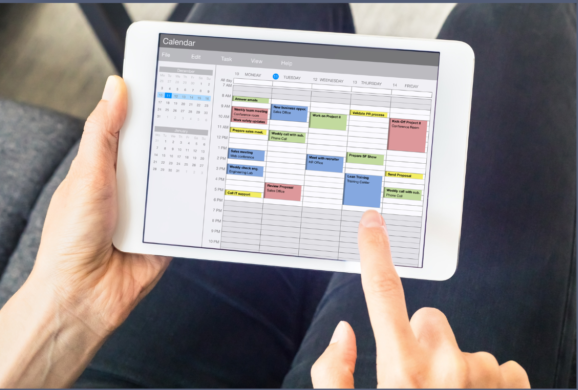Pearl’s Experience with Energy Stealers
In today’s world, various factors can deplete our energy, leaving us fatigued. These are often referred to as energy stealers. Take the case of Pearl, a 62-year-old woman nearing retirement. As a widow deeply involved in her children’s and grandchildren’s lives, she faces a stressful work environment and assists with childcare and school runs. Lately, Pearl has felt unusually tired and lacks the energy to get through her day. She struggles with sleep but is reluctant to use medication. Keen on maintaining her family connections and sense of purpose, Pearl seeks strategies to eliminate her energy stealers and feel vibrant once again.
If Pearl’s situation resonates with you, read on to discover the top 8 energy stealers, how they sap your vitality, and ways to eliminate them and reclaim your energy.
Top 8 Energy Stealers
Energy Stealer #1- Chronic Stress

Stress: Chronic stress can steal our energy in various ways. Persistent worry, pressure, and anxiety trigger the body’s stress response, resulting in the secretion of stress hormones such as cortisol and adrenaline. This continuous state of stress can eventually disturb our sleep patterns, hinder cognitive performance, and compromise our immune system, making us feel both mentally and physically exhausted. This energy stealer not only is sneaky in that it robs us at the subconscious level. This sometimes make it difficult to apprehend this culprit.
The top three solutions to address stress and its impact on energy levels are:
a) Practice Relaxation Techniques: Engage in relaxation techniques such as deep breathing exercises, meditation, or progressive muscle relaxation to calm the mind and reduce stress levels. These practices can help promote relaxation, lower stress hormones, and restore energy levels. Although this is a simple strategy it is effective in combating this energy stealer on the subconscious level as well.
b) Regular exercise is a potent stress reliever and an excellent source of energy. Strive for a minimum of 30 minutes of moderate activity on most days. Physical exercise triggers the release of endorphins, your body’s innate mood elevators, which can help reduce stress and enhance mood. Exercises are formidable weapons to this energy stealer attacking on the mental level as well
c) Make sleep a priority: Set a regular sleep schedule and develop a calming bedtime ritual to encourage deep sleep. Strive for 7-9 hours of restorative sleep nightly to bolster well-being and vitality. Adequate sleep is crucial for stress management, replenishing energy stores, and improving health.
Energy Stealer #2- Poor Sleep

Poor sleep can deplete energy in individuals over 60 in various ways. Often overlooked because it’s not classified as an illness, we usually have an explanation for it, and, admittedly, a level of acceptance. Before delving into the effects of poor sleep, it’s reassuring to know that this issue can be addressed, and the top three solutions will be outlined below.
Firstly, this energy stealer presents in the form of insufficient or interrupted sleep can cause daytime fatigue and lethargy. This hinders our ability to participate in daily activities with vigor and enthusiasm. Additionally, poor sleep can adversely affect cognitive functions and memory, impairing concentration, decision-making, and mental clarity throughout the day.
This energy stealer is never satisfied and keeps taking in other forms such as mood fluctuations, irritability, and increased stress levels, stealing more energy and diminishing overall well-being. Insufficient sleep can also compromise the immune system, increasing vulnerability to illnesses and infections, which can further sap energy.
Poor sleep can profoundly affect the physical, mental, and emotional health of individuals over 60, making it crucial to tackle sleep problems to boost energy and vitality.
The top three remedies are as follows:
a) Establishing a consistent sleep routine is key: choose a fixed bedtime and wake-up time, applicable even on weekends, to help regulate your body’s clock. Develop a tranquil bedtime ritual involving activities such as reading, listening to soothing music, or taking a warm bath, which can cue your body to start winding down.
b) To foster a sleep-friendly environment, ensure your bedroom is cool, dark, and silent. Choose a comfortable mattress and pillows that promote proper alignment and minimize discomfort throughout the night. Reduce screen time and exposure to electronic devices before bed, as the blue light they emit can interfere with sleep cycles.
c) Practicing relaxation techniques can soothe the mind and ready the body for sleep. Techniques like deep breathing, progressive muscle relaxation, and gentle yoga can alleviate stress and tension, aiding in falling asleep and maintaining sleep throughout the night. Furthermore, integrating natural remedies like herbal teas or lavender essential oil aromatherapy may enhance relaxation and sleep quality.
Energy Stealer #3 Sedentary Lifestyle

A sedentary lifestyle among individuals over 60 can steal their energy in several ways. Firstly, lack of physical activity can lead to muscle weakness and loss of stamina, making everyday tasks more challenging and exhausting. Additionally, sedentary behavior can contribute to weight gain and obesity, which further drains energy levels and increases the risk of fatigue. Moreover, prolonged sitting or inactivity can lead to poor circulation and reduced oxygen flow to the brain and muscles, resulting in feelings of lethargy and mental fog. Furthermore, this energy stealer in particular is associated with an increased risk of chronic conditions such as heart disease, diabetes, and depression, all of which can negatively impact energy levels and overall well-being.
To address the impact of a sedentary lifestyle on energy levels in individuals over 60,
a) Incorporating regular physical activity into daily routines is crucial. Engaging in low-impact exercises, such as walking, swimming, or cycling, can significantly improve cardiovascular health, enhance stamina, and elevate energy levels.
b) Furthermore, adding strength training exercises to your routine can build muscle mass, enhance balance, and improve overall physical function, which may lead to heightened energy and vitality.
c) Additionally, interrupting long periods of sitting with brief periods of activity or light stretching can enhance circulation, alleviate stiffness, and help ward off fatigue during the day.
d) Ultimately, making regular physical activity a priority, whether it’s through hobbies, household tasks, or outdoor pursuits, can counteract the adverse impacts of a sedentary lifestyle and enhance overall energy and well-being.
Energy Stealer #4- An Unhealthy Diet

An unhealthy diet can significantly impact the energy levels of individuals over 60. Consuming processed foods rich in sugar, refined carbs, and unhealthy fats can cause blood sugar levels to fluctuate, leading to energy dips and fatigue. This energy stealer robs us of essential nutrients, including vitamins, minerals, and antioxidants, can hinder bodily functions and the performance of energy-producing cells, diminishing overall vitality. Additionally, this energy stealer results from other forms of poor dietary choices that lead to dehydration, such as excessive intake of caffeine or alcohol, can result in tiredness, headaches, and impaired cognitive function. This energy stealer is like a double edged sword in that it robs you of essential nutrients but may also contribute to weight gain and obesity, which can intensify fatigue, limit mobility, and further deplete energy.
To address the impact of an unhealthy diet on energy levels in individuals over 60, implementing these three natural and physical solutions is crucial.
a) Firstly, focusing on a balanced and nutrient-dense diet that includes whole foods like fruits, vegetables, lean proteins, whole grains, and healthy fats is essential for providing the body with the nutrients needed for optimal energy and well-being. Adding a variety of colorful fruits and vegetables to your meals guarantees a wide range of vitamins, minerals, and antioxidants, and consuming lean proteins and whole grains helps maintain steady energy throughout the day.
b) Moreover, maintaining hydration by consuming a sufficient amount of water each day can help avert dehydration and sustain ideal energy levels. Reducing the intake of sugary drinks and alcohol, and choosing water, herbal teas, or flavored water can aid in staying hydrated and enhance overall energy and well-being.
c) Ultimately, adopting mindful eating practices could be considered a double response to eliminating this energy stealer. Mindful eating includes eating slowly, relishing each mouthful, and heeding the signals of hunger and satiety, can enhance digestion, nutrient uptake, and general vitality.
Individuals over 60 can mitigate the effects of an unhealthy diet on their energy levels and improve their overall health and well-being by prioritizing a balanced diet, ensuring proper hydration, and engaging in mindful eating.
Energy Stealer #5- Dehydration

Dehydration in individuals over 60 can greatly diminish their energy and affect their overall well-being. As the body ages, its capacity to conserve water reduces, leaving older adults at a higher risk of dehydration. The consequences of this energy stealer, especially in the 60+ adult, include a spectrum of negative effects such as fatigue, dizziness, confusion, and impaired cognitive abilities. It also impairs physical performance, potentially causing muscle weakness, cramps, and limited mobility. Furthermore, this energy stealer if not apprehended could lead to health issues like urinary tract infections, kidney stones, and constipation, which can intensify sensations of tiredness and discomfort.
To mitigate the effects of dehydration on energy levels in individuals over 60, it is crucial to implement three natural and physical strategies.
a) First and foremost, boosting daily water consumption is vital for sustaining hydration and ensuring adequate energy levels. It’s recommended that older adults drink a minimum of eight to ten glasses of water per day, and possibly more when physically active or in warmer climates. Regular sips of water, keeping a refillable water bottle handy, and infusing water with fruits or herbs are effective strategies to promote consistent hydration.
b) Additionally, eating hydrating foods like fruits and vegetables that are rich in water content, such as watermelon, cucumbers, oranges, and strawberries, can help maintain hydration. These foods offer not just hydration but also vital vitamins, minerals, and antioxidants that aid in energy production and promote overall well-being.
c) Ultimately, it is crucial to avoid dehydrating beverages like caffeinated and alcoholic drinks that can lead to increased fluid loss. To maintain proper hydration levels, choosing hydrating options such as herbal teas, coconut water, or sports drinks enriched with electrolytes can aid in replenishing fluids and ensuring optimal hydration.
By focusing on increased water consumption, eating hydrating foods, and steering clear of drinks that cause dehydration, people over 60 can mitigate the effects of dehydration on their energy levels and improve their overall health and wellness. These straightforward but impactful measures can assist seniors in maintaining hydration and vitality, thus supporting a more active and fulfilling lifestyle.
Energy Stealer #6- Negative Thinking

Negative thinking in individuals over 60 can stealer their energy and affect their overall well-being. This energy stealer comes in the form of, self-doubt, and pessimism can cause stress, anxiety, and a low mood, which in turn drain energy and lower motivation. Moreover, these negative thinking patterns can lead to a cycle of rumination and worry, further exhausting mental and emotional reserves. This energy stealer like stress is sneaky in that it steals mental energy which many times we are unaware of how the negative thoughts spiral out of proportion and the time spent with these thoughts. Consequently, this may lead to reduced productivity, weakened cognitive abilities, and a lessened sense of vitality and enthusiasm for life.
To address the impact of negative thinking on energy levels in individuals over 60, implementing these three natural and physical solutions is essential.
a) Firstly, engaging in mindfulness and relaxation techniques can be effective in combating negative thought patterns and fostering a positive mindset. Practices like deep breathing, meditation, and progressive muscle relaxation can quiet the mind, lower stress, and enhance feelings of calm and inner peace. Regularly dedicating even a few minutes daily to these practices can significantly improve overall well-being and vitality.
b) Additionally, nurturing a supportive social network and partaking in significant social activities can combat pessimistic thoughts and elevate energy levels. Time spent with friends, family, and loved ones who offer encouragement and upliftment can be a crucial source of emotional support and connection. Engaging in group activities, volunteering, or becoming a member of clubs or community groups can foster a sense of belonging and purpose, mitigating feelings of isolation and negativity..
c) Ultimately, developing a positive mindset and engaging in gratitude practices can alter one’s perspective and boost vitality. Actively focusing on the present, valuing life’s gifts, and transforming negative thoughts into optimistic ones can build resilience and improve emotional health. Maintaining a gratitude journal to record daily thanksgivings is a straightforward but effective method to nurture a positive attitude and elevate energy.
Individuals over 60 can mitigate the effects of negative thinking on their energy and well-being by embracing mindfulness, relaxation techniques, nurturing social ties, and maintaining a positive outlook. These natural and proactive approaches can enhance vitality, fortitude, and happiness in daily life, enabling seniors to lead energetic and spirited lives.
Energy Stealer #7- Multitasking

Multitasking among individuals over 60 can steal their energy by spreading their attention and focus too thin, leading to increased mental fatigue and reduced productivity. Attempting to juggle multiple tasks simultaneously can overwhelm the brain, leading to cognitive overload and decreased efficiency. This can result in feelings of stress, frustration, and exhaustion, ultimately draining energy levels and impairing overall well-being. Moreover, constantly switching between tasks can disrupt concentration and lead to decreased performance on each individual task.
To eliminate the impact of multitasking on energy levels in individuals over 60, implementing these three natural and physical solutions is crucial.
a) Firstly, practicing mindfulness and prioritizing single-tasking can help reduce cognitive overload and promote greater focus and productivity. Instead of trying to tackle multiple tasks at once, focus on completing one task at a time, giving it your full attention and concentration. Mindfulness techniques such as deep breathing exercises, meditation, and mindful walking can help quiet the mind and enhance concentration, making it easier to stay focused on the task at hand.
b) Secondly, establishing clear boundaries and setting realistic expectations can help prevent the temptation to multi-task and reduce feelings of overwhelm. Determine your priorities and allocate dedicated time blocks for each task, allowing for focused, uninterrupted work. Set boundaries around distractions such as email, phone calls, and social media, and create a conducive work environment that supports concentration and productivity. By creating structure and organization in your daily routine, you can minimize the need for multi-tasking and optimize energy levels.
c) Finally, taking regular breaks and incorporating movement into your day can help combat the negative effects of multitasking on energy levels. Schedule short breaks throughout the day to rest and recharge, allowing your mind to rest and reset between tasks. Use these breaks to stretch, go for a walk, or engage in other physical activities that promote relaxation and rejuvenation. Physical movement not only helps improve circulation and reduce muscle tension but also boosts energy levels and enhances cognitive function, making it easier to stay focused and productive.
By practicing mindfulness, setting boundaries, and incorporating movement into your day, individuals over 60 can address the impact of multi-tasking on their energy levels and overall well-being. These natural and physical solutions can help promote greater focus, productivity, and vitality, empowering older adults to approach tasks with clarity and efficiency while conserving their energy for the activities that matter most.
Energy Stealer #8- Lack of Boundaries

The lack of boundaries among individuals over 60 can steal their energy by leading to over-commitment, stress, and feelings of overwhelm. This is another sneaky energy stealer because, without clear boundaries in place, older adults may find themselves saying yes to every request or obligation, spreading themselves too thin and neglecting their own needs. This can result in physical and mental exhaustion, as well as diminished overall well-being. Additionally, the lack of boundaries can blur the lines between work and personal life, leading to difficulty disconnecting and unwinding, which further drains energy levels.
a) Firstly, practicing assertiveness and learning to say no can help establish clear boundaries and prioritize self-care. Older adults should feel empowered to decline requests or obligations that do not align with their values, priorities, or well-being. Setting limits on their time and energy allows them to conserve resources and focus on activities that truly matter to them, reducing feelings of overwhelm and exhaustion.
b) Secondly, establishing a routine and sticking to it can help create structure and predictability in daily life, thereby reducing stress and increasing energy levels. Setting specific times for work, leisure, and rest allows older adults to allocate their time and energy more effectively, preventing burnout and promoting a balanced lifestyle. Consistency in daily routines helps establish boundaries between different areas of life, enabling older adults to switch off from work and dedicate time to relaxation and rejuvenation.
c) Finally, practicing self-care and prioritizing activities that nourish the mind, body, and soul can help replenish energy levels and prevent burnout. Engaging in activities such as exercise, hobbies, meditation, and spending time with loved ones can provide a much-needed break from stress and responsibilities, allowing older adults to recharge and refuel. Setting aside time for self-care each day demonstrates a commitment to prioritizing one’s well-being and reinforces the importance of establishing boundaries to protect energy levels and overall health.
By practicing assertiveness, establishing routines, and prioritizing self-care, individuals over 60 can address the impact of lack of boundaries on their energy levels and well-being. These natural and physical solutions empower older adults to take control of their time and energy, set clear boundaries, and cultivate a balanced and fulfilling lifestyle that supports optimal health and vitality.
By identifying these energy stealers and taking proactive steps to address them, we can reclaim our vitality and live more energized and fulfilling lives.
